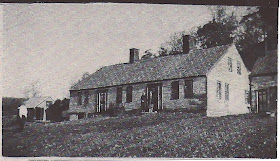Since we printed “Parsonsfield
Maine – a Town of Many Villages”, we have discovered several other old
homesteads and learned about their history - particularly in the Middle Road
area. Over the next few months, we will
present some of those pictures here.
This
is a very old house that played an important role in the history of Parsonsfield. It is located on the north side of “old”
Middle Road that continues east beyond where the pavement ends, not far from the
Maplecrest intersection.
It a somewhat
removed from the central Middle Road Village, but the Parsonsfield 1888 History
tells us that Job Colcord settled here before incorporation of the town and
opened a tavern. Town meetings were held at the Wiggin’s home and at the Colcord’s home until the
first meeting-house was finished in 1795.
It is doubtful that this was the original tavern, as most early
buildings were of log construction. This
building is assumed to have been built about 1800.
Besides a tavern it was also a stagecoach
stop. It was later owned by Andrew
Welch and then L.Welch as shown on the 1856 and 1872 maps. It had passed out of the family by 1888.
The
Colcord/Welch house still stands today at 1286 Middle Road and is on the
National Register of Historic Places. Its
double Cape Cod architecture is unusual.
It has had many owners including William Milliken from 1900 to 1946.
Naomi Heckman (his nurse?) lived here from 1944 to 1967. She sold it to George Coffin who sold it to
David Brown 1978. There have been several
other owners since then.




.jpg)